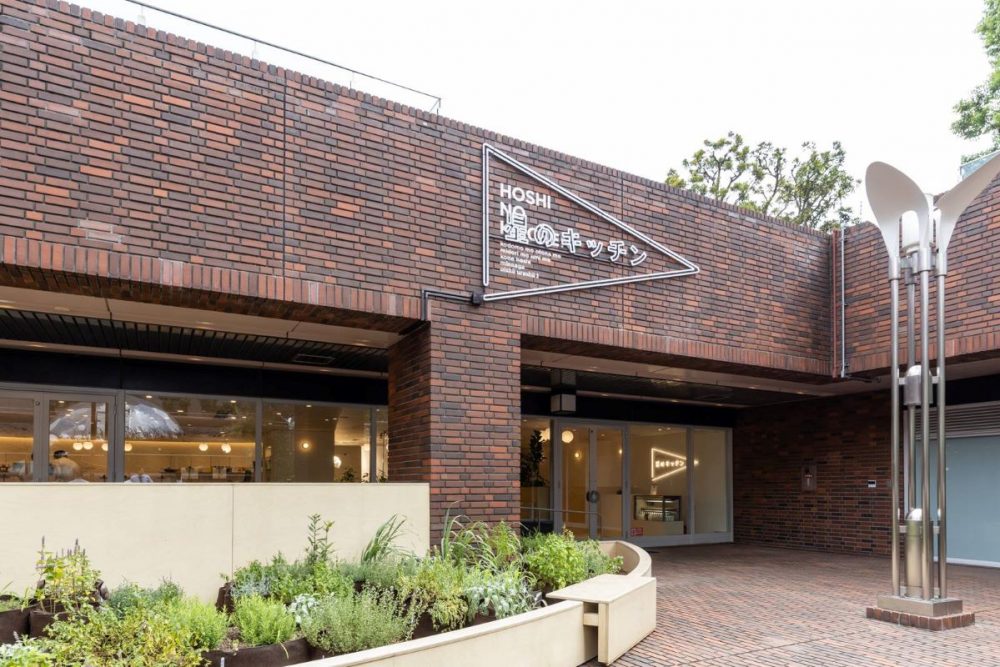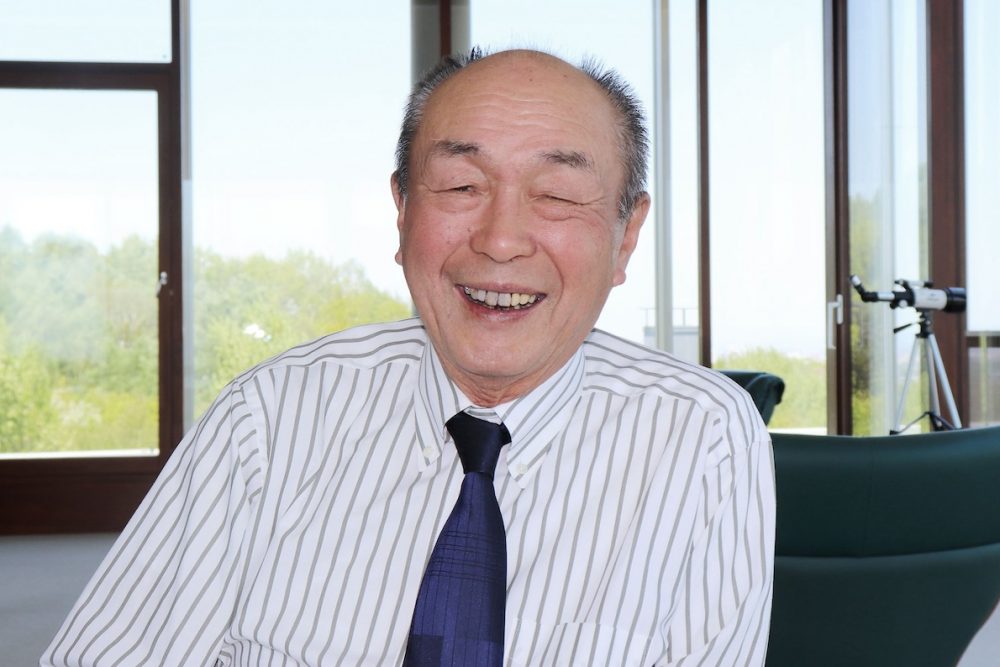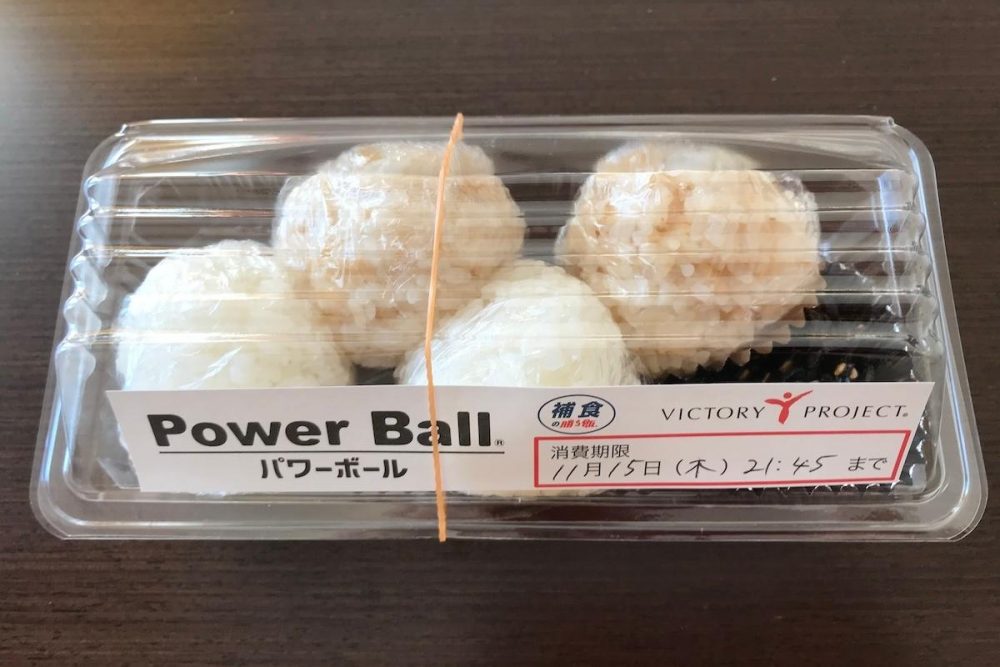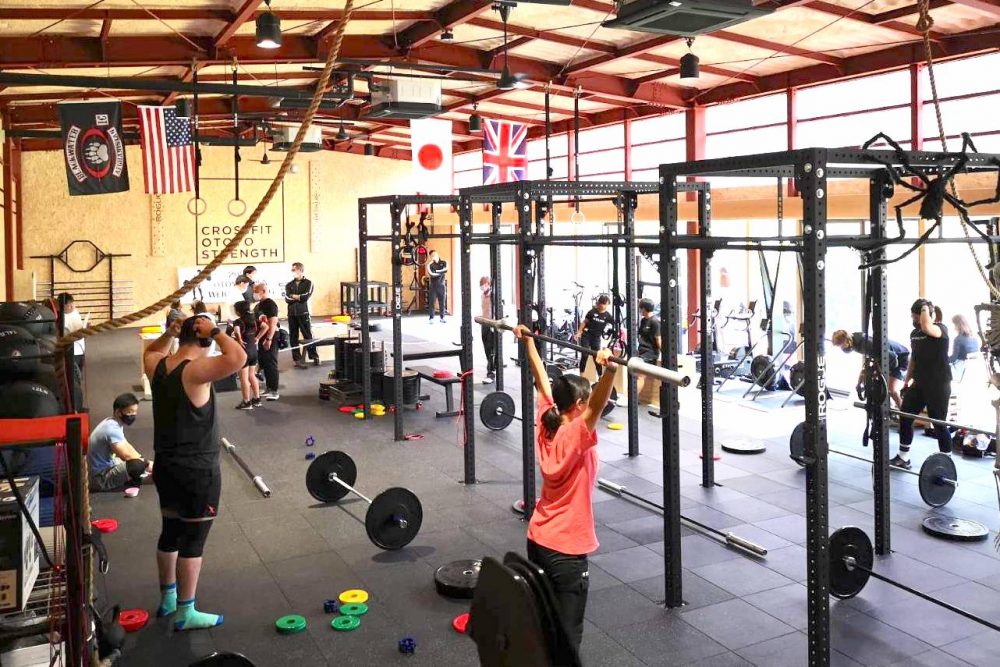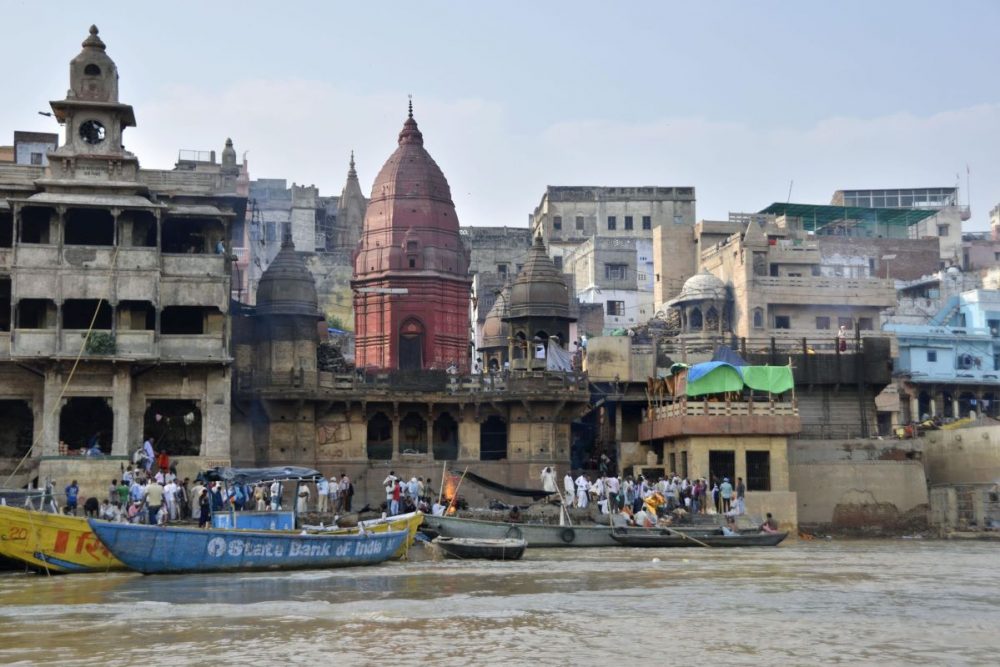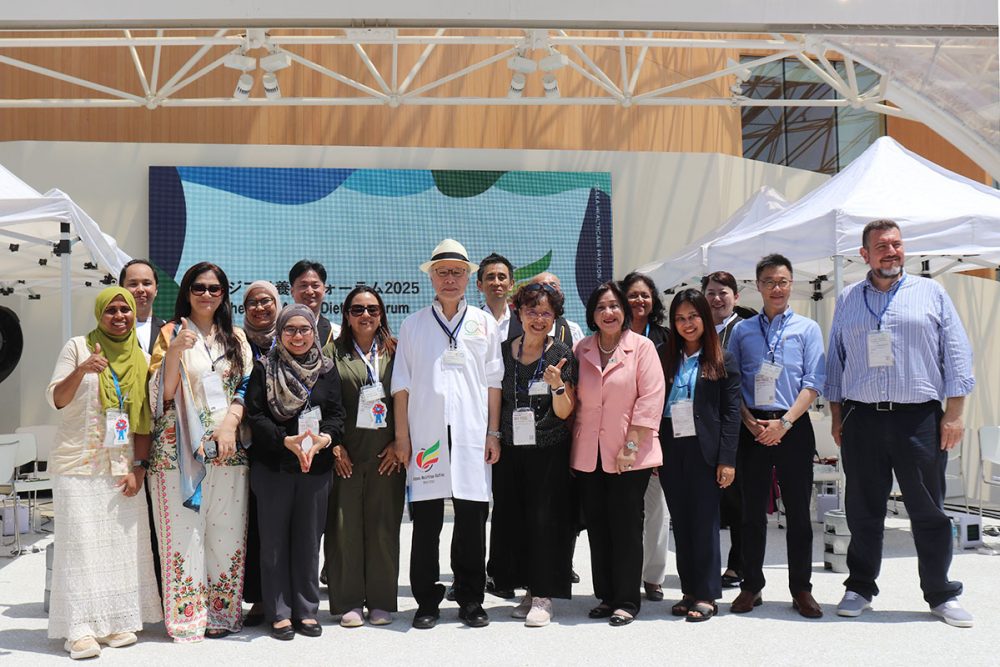Reflections on the Paris Paralympics: A Deaf Participant's Experience
In Paris, Oshiro helped Ajinomoto support Japanese Para athletes through the comforting power of umami while dreaming of a united Paralympics and Deaflympics.
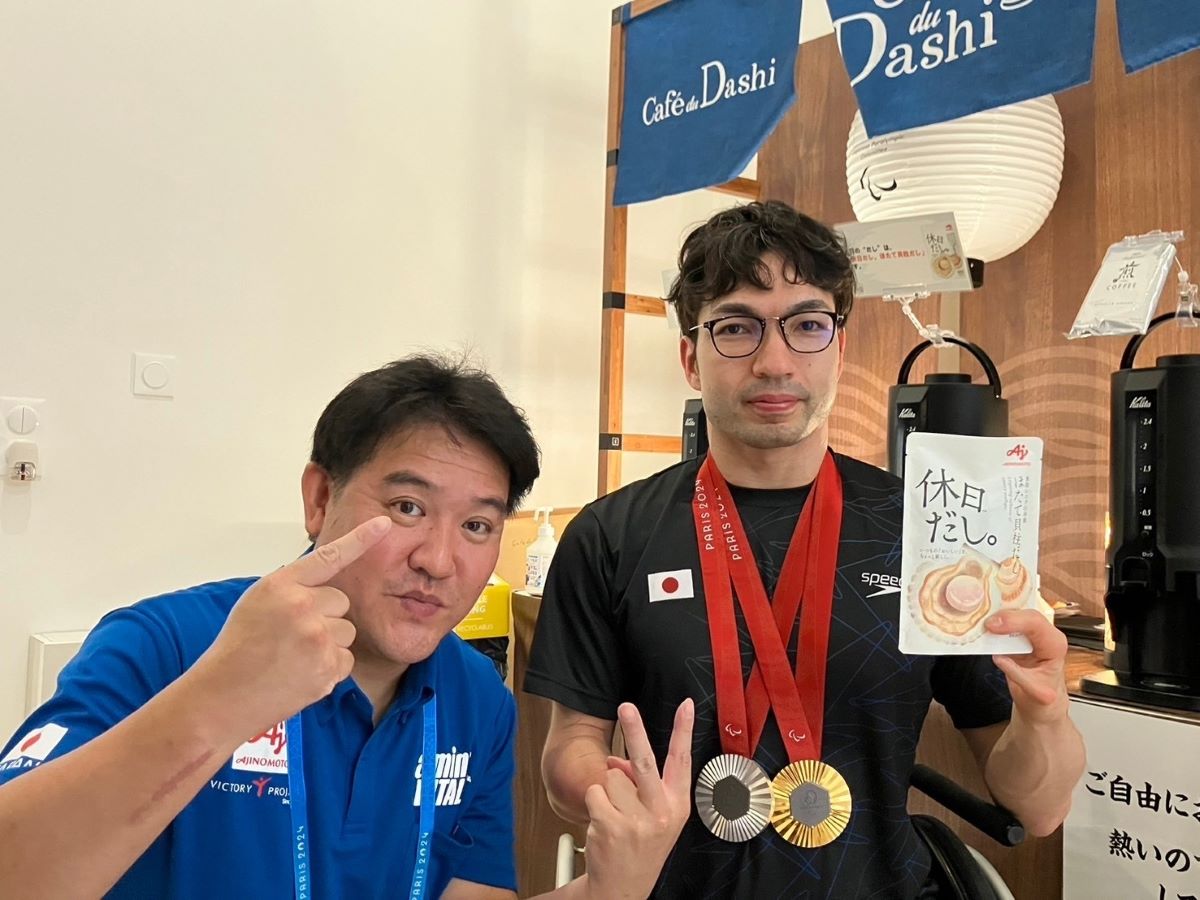
SPONSORED— Excitement over Japan's medal wins at the Paris 2024 Paralympics was palpable. How did Japan support its athletes? We take a moment to reflect with Junichi Oshiro, 47.
The Ajinomoto Co, Inc employee, who is deaf, played a key role in supporting the Japan national team's nutrition. Oshiro shared his unique experiences from the event in an interview with JAPAN Forward.
Specifically, he was part of a project to provide dashi broth near the athletes' village in Paris. They were there to support the Japan national team's nutrition at the Paris Paralympics.
At the same time, Paris is home to the world's first school for the deaf, the National Institute for Deaf Youth of Paris. It was founded by Father de l'Épée in the mid-18th century (established in 1750, nationalized in 1791). During the Paralympics, Junichi Oshiro visited this historic school.
It's also significant that Paris hosted the first-ever Deaflympics, the Olympic Games for the Deaf, in 1924. Next year, in November 2025, Tokyo will have the honor of hosting the Deaflympics.
Reflecting on his first Paralympic experience, Oshiro spoke of his many discoveries as he expressed hope for a more inclusive society in the next 30 years.
Excerpts follow.
Support for Athletes Throughout the Village
What were your impressions of the dining hall in the athlete's village?
Athletes with physical disabilities, such as those who are visually impaired or missing limbs, were always accompanied by assistants. These assistants helped them with everything — from getting their food, eating, and cleaning up, to returning to their rooms.
The dining hall was spacious, offering plenty of room for everyone to move around comfortably. Also, the buffet counters were set lower. That made it easier for wheelchair athletes to see and select their meals.
Since the Deaflympics is specifically for athletes with hearing impairments, does that mean there were no deaf athletes at the Paralympics?
When I spoke with various national teams, I found out there was a one-armed deaf athlete from the United Kingdom. Unfortunately, I didn't have the chance to meet the athlete.
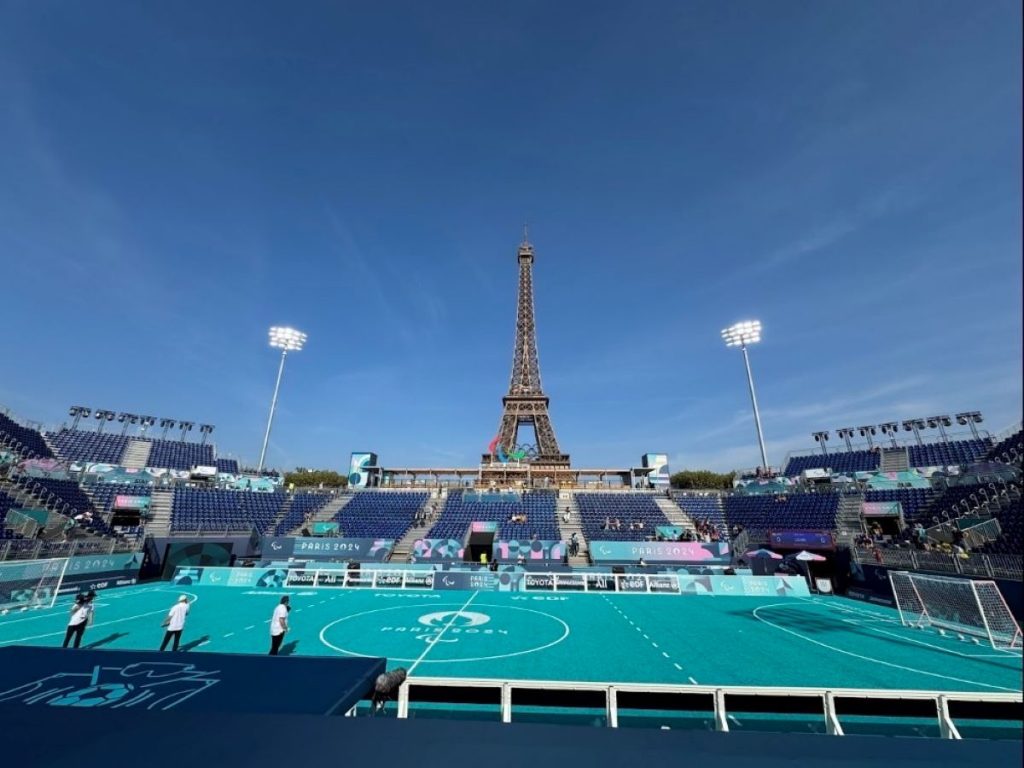
Support for Spectators at Blind Soccer Matches
Were you looking forward to the blind soccer (officially, blind football) matches? How was the experience?
It's a world I could hardly imagine, so different from my own experience as someone with a hearing impairment. Watching these completely blind players move so dynamically was truly incredible.
What struck me most was how players called out before attempting to take the ball from another. It's a sport that demands a lot of mutual respect and consideration.
I was also curious about how visually impaired spectators followed the game. They were given yellow vests and special devices called boards. During halftime, I spoke with a mother and daughter. The daughter was visually impaired. Using the board, which automatically replicated the ball's movements, she could follow the match through touch. I was deeply moved by this innovative tool. It enables visually impaired spectators to fully engage with a sport designed for them.
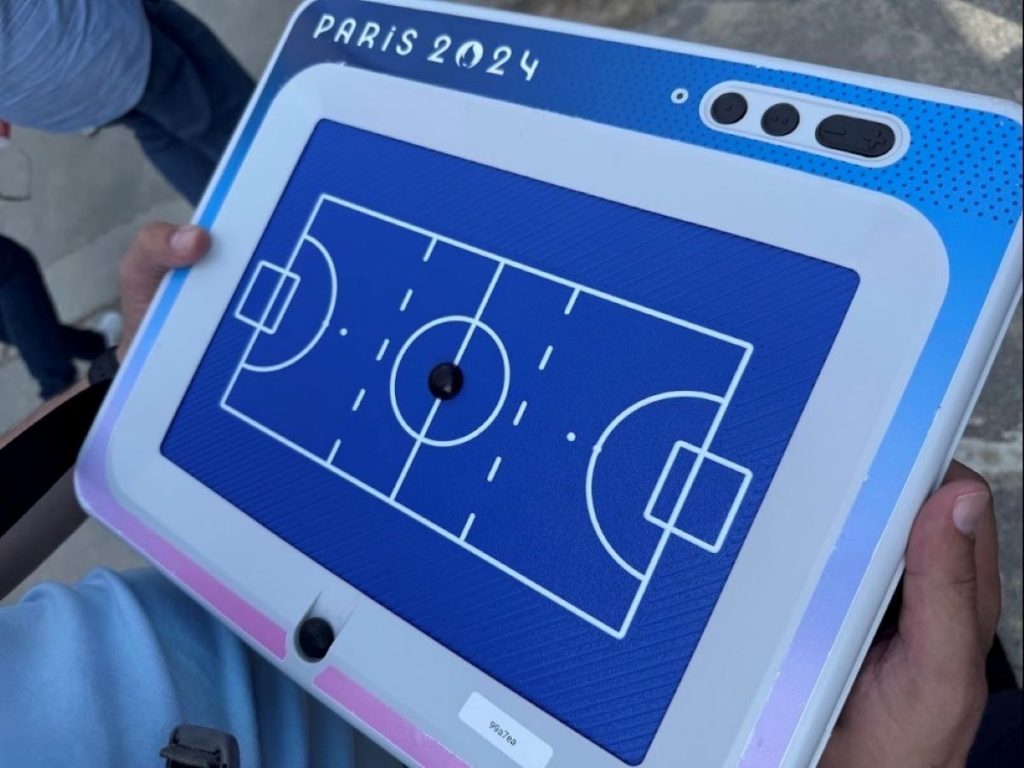
How have you followed the Olympics and Paralympics in the past?
I used to watch with subtitles on TV and check the results online or through social media. Back during the 1988 Seoul Olympics, there were no audio descriptions. At that time, I had to rely on the next day's newspaper for updates. Now, with subtitles and real-time updates on social media, it's incredible how much easier it is to stay informed. It's truly revolutionary.
Swimmer Takayuki Suzuki: Japan's First Gold Medalist
Suzuki, who won Japan's first gold medal in the breaststroke for athletes with physical disabilities, has a partnership with Ajinomoto. Did you have the chance to speak with him?
I was in the stands when he won bronze in the 200-meter freestyle [swim]. The sense of unity was overwhelming as I high-fived the French spectators around me.
Watching a Japanese athlete win a medal at an international competition filled me with pride as a Japanese person. It also left a deep emotional impact from witnessing it live. It was an unforgettable moment.
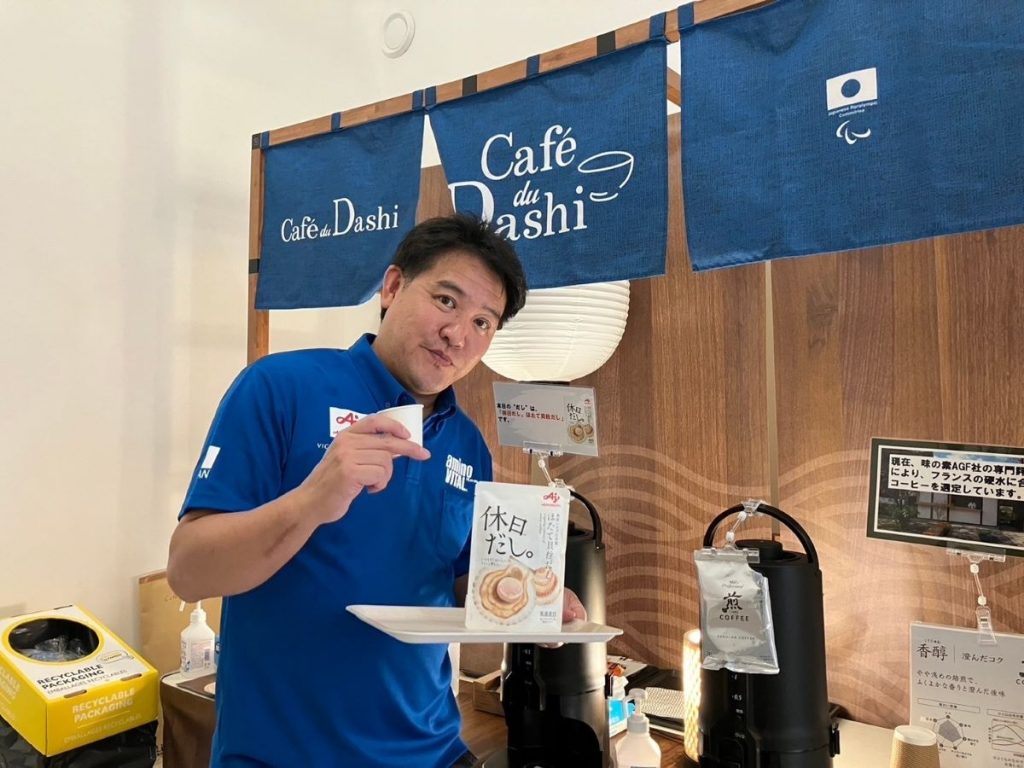
Weren't you serving dashi broth at the Café du Dashi near the athlete's village? Was that a place for athletes to relax?
It was a great joy to support Paralympic athletes through the comforting power of Japanese umami. They were under immense pressure in a foreign country. Takayuki Suzuki visited our booth the day after winning his medal. When I congratulated him, he signed "thank you" in sign language, which was incredibly touching.
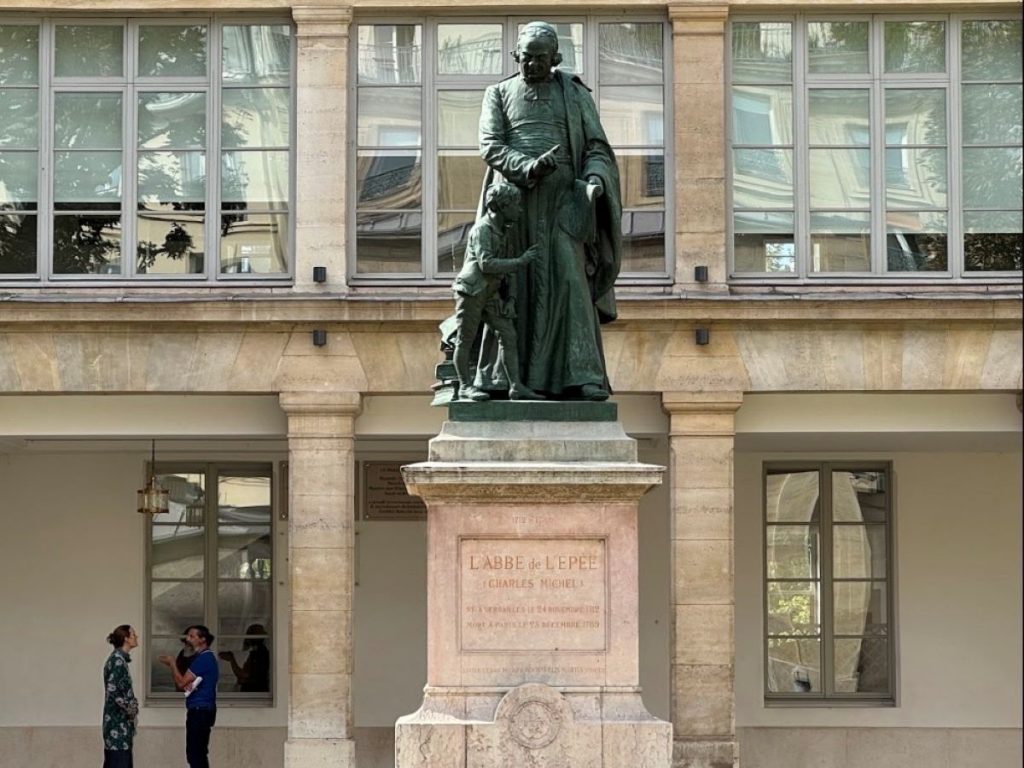
Connecting with the Deaf Community
What was your impression of the National Institute for Deaf Youth of Paris?
The school had photos of the first Deaflympics displayed on its outer walls, and I took my time admiring these valuable images.
After school hours, I approached a group of high school students who were chatting in sign language outside. They told me that around 250 students, aged seven to 21, attend the school, living in dormitories while they study.
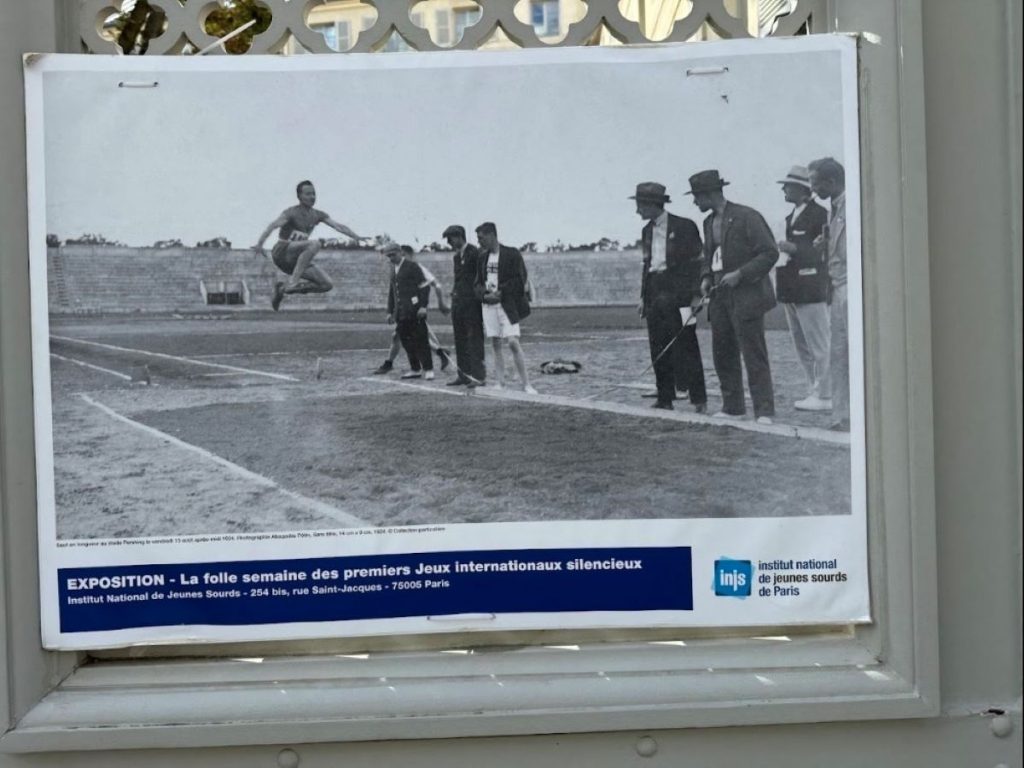
What did the students think about the Paralympics?
They weren't particularly interested in the ongoing Paralympics. However, they were very excited about [the 2025] Deaflympics in Tokyo. When I mentioned that I was from Tokyo, their eyes lit up, and they eagerly expressed their desire to visit Japan.
I was delighted when they started asking me about Japanese manga and food, showing a strong interest in Japan.
The 2025 Deaflympics in Tokyo
I think many people in Japan are still unaware that the Deaflympics is the Olympics for athletes with hearing impairments and it will be held in Tokyo in 2025. How was the awareness in Paris?
When I spoke with some police officers in the city, they asked, "Are you here to watch the Paralympics?" They then followed up with, "But for people who can't hear, it's the Deaflympics, right?"
I was surprised by how much more awareness they had compared to Japan. The Deaflympics, first held in 1924, actually predates the Paralympics. Those began in 1960.
Since the first Deaflympics took place in Paris, the event seems to have a longer and more prominent history in the city. That might be why it received media coverage and is more widely recognized by Parisians.

The World 30 Years from Now
How do you plan to apply what you gained from participating in this event?
Witnessing the Paralympians in action and experiencing the diversity of the athlete's village made me hopeful that, 30 years from now, society will be even more inclusive. I also dream of a future where the Paralympics and Deaflympics are united. I often reflect on the role I can play in helping to bring about that kind of change in the world.
Looking back, I've faced many inconveniences in daily life. However, I don't view my disability as a weakness. It's a part of who I am, and I want to embrace that individuality for the rest of my life.
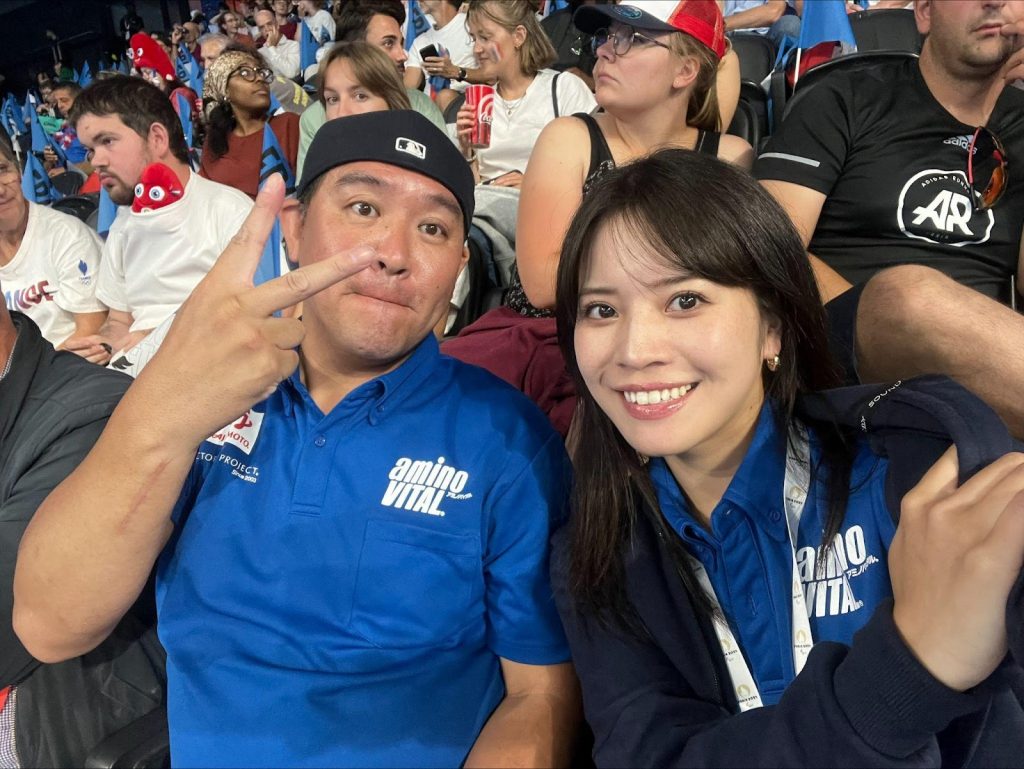
This report is published in cooperation with Ajinomoto, a logo partner of the JAPAN Forward website Japan 2 Earth.
RELATED:
- Paris Paralympic Games: Japan's Para Athletes Inspire the World
- Rice 'Power Balls' Turn Up the Energy for Japanese Athletes at the Paris Olympics
- Paris Paralympics: Japan's Success Fueled by Determination and Talent
[日本語で読み]
Author: Mika Sugiura






